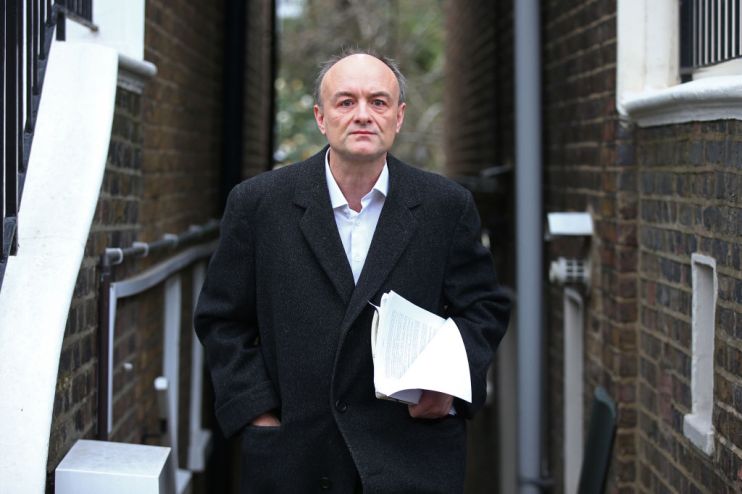Say what you will about Dominic Cummings, he’s spot on about science funding

This week saw the return of Dominic Cummings to the public stage as he gave evidence to a parliamentary committee on the launch of his brainchild, ‘ARIA’, the new UK Advanced Research and Invention agency.
At least that’s what he was meant to be there for. Inevitably, the focus drifted into a broader discussion of his influential role in Downing Street during the pandemic.
But it was this comment which caught my eye: “If UKRI budgets have been cut then that’s obviously an extremely bad decision”.
And they have, so he is of course absolutely right.
It is curious that for a government so determined to big-up the UK as a “global science superpower” it is seemingly hesitant to put its money where its mouth is.
True, ARIA is exciting. It is modelled on the US government-backed DARPA, which was established in the 1950s and is credited with pioneering transformational innovations like the internet and GPS.
Conceptually it is very different to most traditional R&D programmes. The emphasis is on taking big risks and failing fast – all proven hallmarks of great innovation. But even ARIA’s funding is meagre compared to DARPA at £810m versus $3.5bn.
Cummings admitted it would struggle to match the American model with these resources, though doubled down on the importance of its philosophy, saying that “freedom is much more important than money.”
Even if we accept that “freedom” can make up the shortfall in pounds and pence, it won’t compensate for cuts to R&D funding elsewhere.
Those of us looking to the Budget earlier this month to see if the government could turn its words into deeds were left with some big worries.
There was no mention of where the UK would source its £2bn contribution for Horizon Europe. This is the world’s largest research programme and Britain’s on-going participation in it was one of the few good outcomes for science from the Brexit deal.
Where will the money come from?
Well in a concerning development last week, URKI announced that it has been asked by the government to review all 2021-22 commitments for its important Official Development Assistance programme, with a view to reducing funds.
The Chancellor made clear that the public finances are not in great shape and that a reckoning with the deficit is due. And I’m not naive enough to suggest we can write blank cheques for every venture.
Innovation in approach, like ARIA, will be important when resources are scarce. The £375m Future Fund: Breakthrough will see the government take on equity stakes in promising life science and tech start-ups alongside private capital.
And a mooted although yet to be revealed life sciences investment programme leveraging UK money alongside a UAE sovereign wealth fund is similarly interesting as a means for doing more with less.
But the fact remains that the UK spends 40 per cent less than South Korea on R&D despite its economy being 75 per cent bigger.
This is to say nothing of the significant regional disparities in the way R&D spending is distributed, where we see the government’s soaring rhetoric on support for science meeting its signature “levelling up” agenda.
Research from Nesta last year placed a £4bn price tag on the level of public R&D funding the UK’s regions miss out on every year. Closing this gap would stimulate a further £8bn in additional private sector investment, the charity argued.
There’s no getting away from the fact that the government needs to stump up more money if it is really serious about supporting the UK’s global science ambitions.